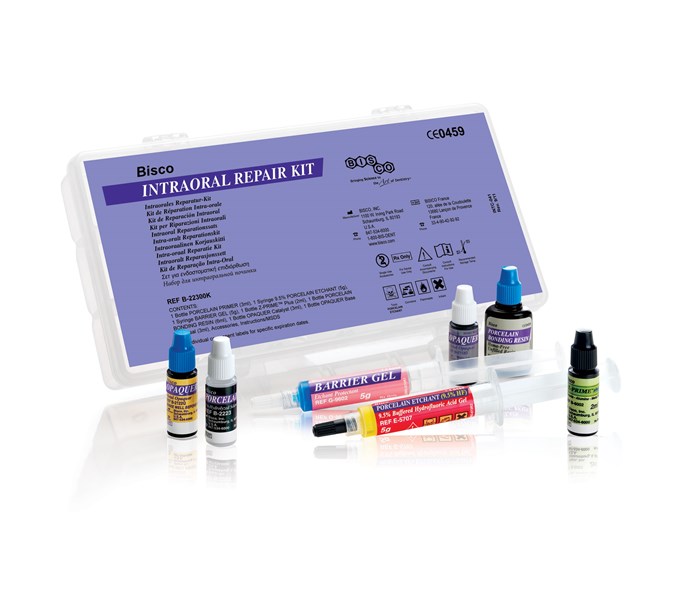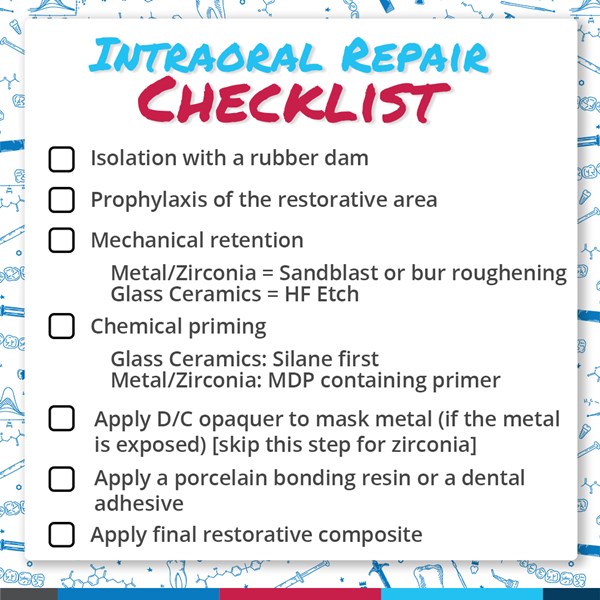After months of lockdown due to the pandemic, dental offices are starting to reopen and patients are returning. It’s likely many of them will have emergencies and broken restorations that will need to be repaired. Having an intraoral repair protocol and the proper materials handy will prepare your office for these incoming cases. Restorative dentistry is one of the first steps towards getting patients back to their healthy lives.
In this post, we’ll cover the basics of intraoral repair.
Gather Your Materials
First, you’ll need to gather your products and materials. Intraoral repair will require a few key products:
You can gather these materials from what you already have in your office and create a DIY kit using a tackle box or something similar.

BISCO also offers a dedicated Intraoral Repair Kit.
Understanding The Process
The process for repairing porcelain and metal restorations will be the same, however the protocols will be different depending upon the substrate.
Step 1: Mechanical retention
For metal/zirconia substrates: sandblast or bur roughening
For glass ceramic substrates: HF etch (make sure to read the instructions for etching times)
Refer to the IFU for etching times
Step 2: Chemical priming
For metal/zirconia substrates: organophosphate (MDP) containing primers
For glass ceramic substrates: Pure silane
The Protocol
Follow the correct protocol for the restoration substrate.
-
Isolation with a rubber dam
-
Prophylaxis of the restorative area
-
Mechanical retention
-
Metal/Zirconia = sandblast or bur roughening
-
Glass Ceramics = HF etch
-
Chemical priming
-
Glass Ceramics = silane first
-
Metal/Zirconia = MDP containing primer
-
Apply a D/C opaquer to mask metal (if metal is exposed)
-
Note: This step not necessary for Zirconia
-
Apply a porcelain bonding resin or dental adhesive
-
Apply final restorative composite
To make it even easier, here is a downloadable Intraoral Repair Checklist that you can print out as a reminder.

June 2020